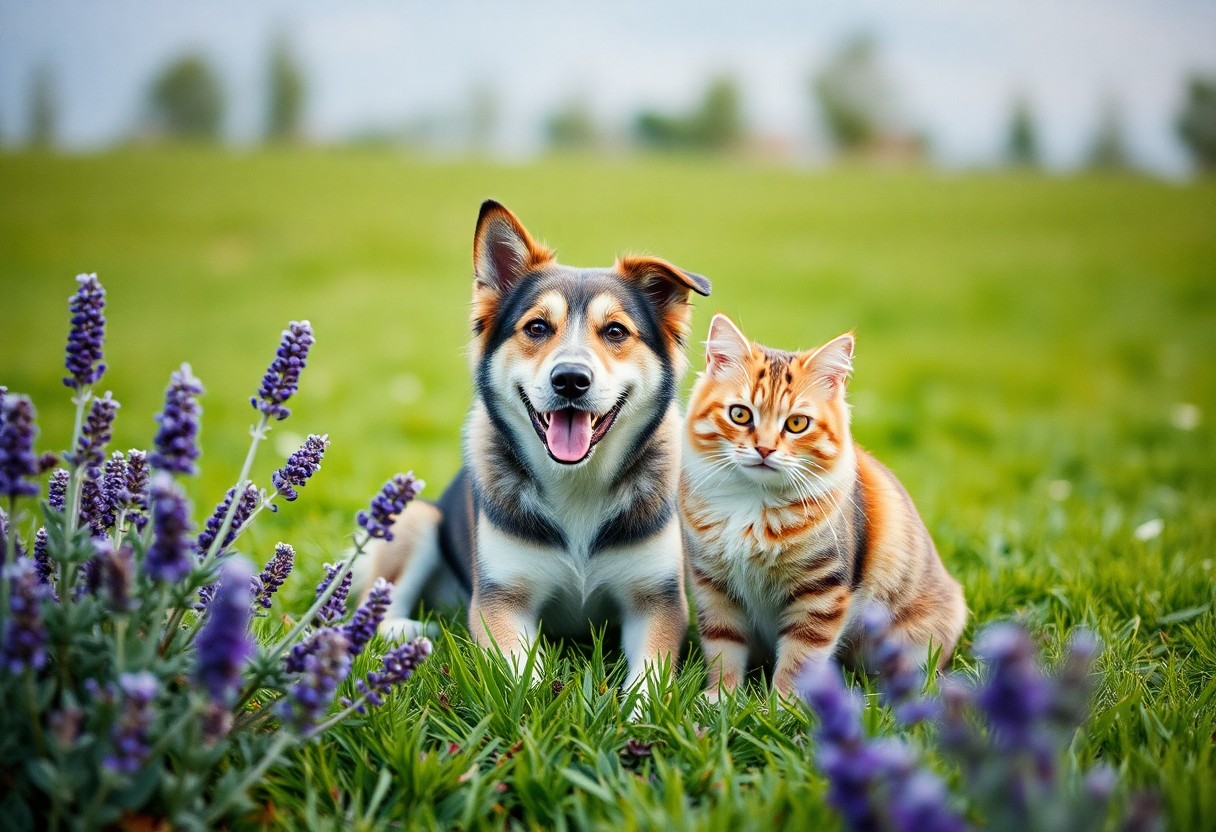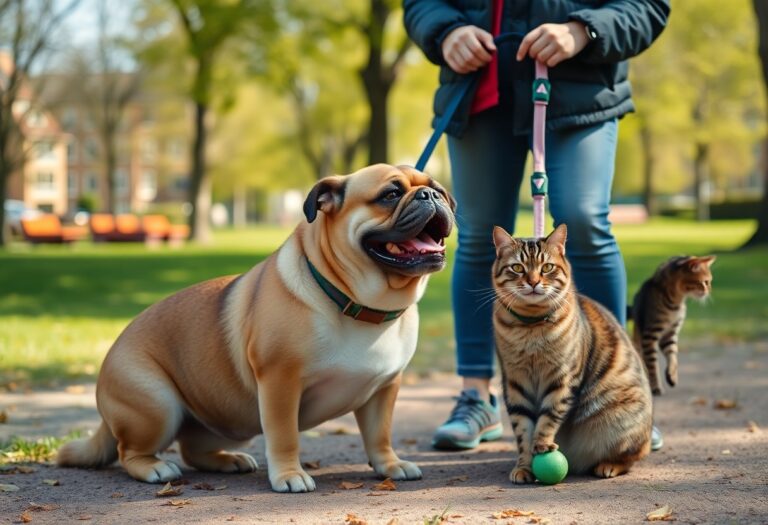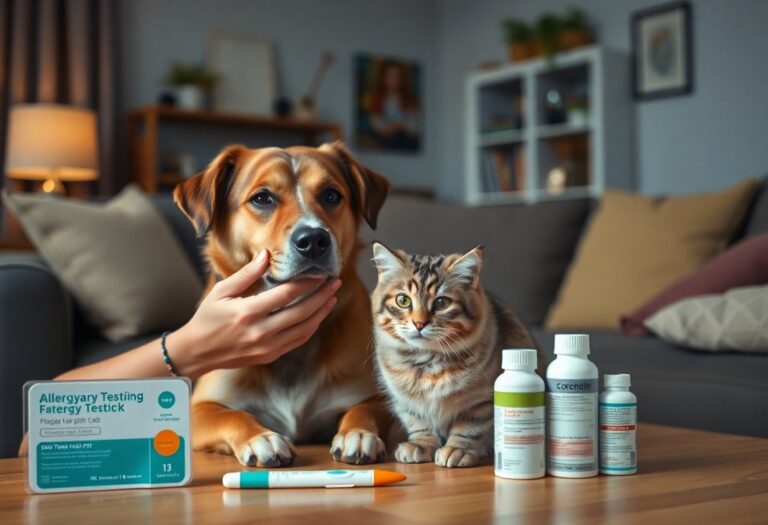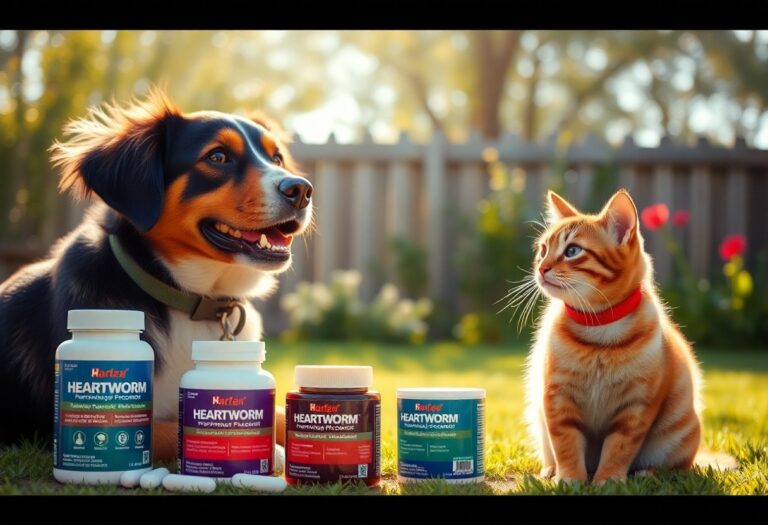Pets can be a source of joy, but they can also attract unwanted fleas, which pose a serious threat to their health and comfort. By using natural methods, you can effectively prevent these pesky parasites from infesting your furry friends. In this post, you’ll discover various safe and effective techniques to keep fleas at bay, ensuring your pet remains comfortable and healthy. Embrace these natural solutions today to protect your beloved companions from the discomfort of flea infestations.
Essential Natural Repellents for Fleas
Essential Oils: Nature’s Potent Defenders
Essential oils can be exceptionally effective in combating fleas. Oils such as lavender, peppermint, and eucalyptus not only have pleasing scents but also possess natural insect-repelling properties. For instance, lavender is known for its calming effects on humans, but it can also work wonders on your pets by keeping fleas at bay. Simply mix a few drops of your chosen imperative oil with a carrier oil like coconut or olive oil, and lightly apply it to your pet’s fur or add it to their shampoo. The scents will create an unwelcoming environment for fleas while soothing your furry friend as well.
Herbal Solutions: Plants That Deter Fleas
Certain herbs serve as natural flea deterrents effectively. For example, rosemary and neem have long been used to ward off unwanted insects. Incorporating dried rosemary into your pet’s bedding can help repel fleas while imparting a light, fresh scent. Neem oil, derived from the seeds of the neem tree, is particularly potent in repelling fleas and can be mixed into pet care products or diluted with water for a misting spray that you can apply to your pet before they go outdoors. These alternatives not only deter fleas but also minimize the need for chemical treatments that could pose risks to your pet’s health.
Other herbs worth considering include sage and basil, which both produce strong scents that fleas find unattractive. You can grow these herbs indoors or in your garden; this not only provides fresh ingredients for your homemade repellent but also creates a natural barrier against fleas in your outdoor spaces. Incorporating these plants around your home can enhance your flea prevention strategy while allowing you to enjoy their culinary and aromatic benefits.
The Power of Environment Management
Implementing effective environment management plays a vital role in preventing fleas on your pets. A clean and organized space not only enhances the health of your animals but also disrupts the flea life cycle, making it challenging for these pests to thrive. Regular maintenance of your home and its surroundings creates a less favorable habitat for flea populations. This includes both indoor and outdoor strategies that can significantly decrease the likelihood of your beloved pets contracting fleas.
Cleaning Habits That Keep Fleas at Bay
Consistency in your cleaning routine is fundamental when it comes to reducing flea populations in your home. Begin with vacuuming carpets, rugs, and furniture at least once a week to eliminate flea eggs, larvae, and adult fleas. Make sure to pay special attention to areas where your pet spends most time, such as their bedding and favorite resting spots. Seal the vacuum bag or empty the canister immediately after use to prevent any surviving fleas from escaping back into your environment. Regular washing of pet bedding in hot water is also vital; doing this at least once a month can significantly cut down on flea populations in your household.
The flooring in your home also influences flea propagation. If your home has hardwood or tile flooring, be sure to sweep and mop regularly to combat flea larvae. Ensure that any nooks or crannies, along with baseboards, are not left untouched. Fleas can hide in these areas, surviving undetected and later re-infesting your home. Implementing a stringent cleaning regime not only helps in managing fleas but also enhances the overall cleanliness and hygiene of your living space.
Outdoor Precautions: Creating a Flea-Free Zone
Establishing a flea-free zone in your outdoor space is just as important as maintaining cleanliness indoors. Start by ensuring that your yard is well maintained; regularly mowing your lawn and trimming back shrubs limits the environments where fleas can thrive. Fleas enjoy shady, moist areas, so keeping your yard sunny and dry dramatically decreases their habitat potential. Additionally, adding a layer of diatomaceous earth around the perimeter can effectively deter fleas, as it’s a natural and safe insect repellent.
Using flea-repelling plants in your garden can provide an extra line of defense. Consider incorporating herbs like rosemary, basil, or mint, as their scents are often unappealing to fleas and other pests. Before allowing your pet to roam freely in your yard, inspect the area for potential flea traps, such as piles of leaves or debris where fleas might be cozying up. By managing your outdoor environment proactively, you’ll create a safer, flea-free haven for both you and your pets.
Nutritional Strategies for Flea Prevention
Diet Adjustments for Pet Health
Adjusting your pet’s diet can significantly impact their overall health and resistance to fleas. High-quality protein sources, such as chicken, fish, and beef, should form the basis of their meals. These proteins provide crucial amino acids that help maintain a strong immune system, making it less hospitable for fleas. In addition to a protein-rich diet, consider incorporating whole grains and fresh fruits and vegetables. Ingredients like sweet potatoes, carrots, and blueberries are not only nutrient-dense but also promote skin health, which is important since fleas are attracted to irritated or damaged skin.
Moreover, hydration plays a critical role in a healthy diet. Ensure your pet has access to fresh, clean water, as hydration helps maintain skin suppleness and can deter fleas from setting up camp. You might also consider opting for organic pet food, which often includes fewer artificial additives and retains more natural nutrients. This can boost your pet’s vitality and resilience against parasites, including fleas.
Supplements That Boost Natural Defenses
Incorporating specific supplements into your pet’s routine can enhance their natural defenses and decrease the likelihood of flea infestations. Omega-3 fatty acids, found in fish oil, are known to promote skin health and reduce inflammation, which minimizes the chances of flea allergies. Additionally, probiotics can boost gut health and immunity, making your pet less likely to attract unwanted pests.
Herbal supplements such as brewers yeast and garlic are claimed by some to repel fleas due to their strong odor, which can make your pet less appealing to these pests. It’s crucial to consult with a veterinarian before adding any supplements to your pet’s diet, as individual health needs and potential allergies must always be taken into account.
Adding supplements can significantly contribute to your pet’s overall health and provide an extra layer of defense against fleas. For instance, a daily dose of omega-3s not only aids in keeping your pet’s coat shiny and healthy but can also create an environment that fleas find inhospitable. Likewise, implementing probiotics can help maintain a balanced microbiome, which is vital for optimum health and immune function.
Behavioral Practices for Flea Resistance
Regular Grooming Rituals
Engaging in regular grooming rituals is one of the most effective strategies for keeping fleas at bay. By incorporating weekly brushing sessions into your pet’s routine, you not only remove loose fur and debris but also catch any flees or eggs before they multiply. Use a fine-toothed comb or specialized flea comb to sweep through your pet’s coat thoroughly, paying close attention to areas such as under the armpits and around the tail, where fleas tend to make themselves at home. If you find any fleas during grooming, treat your pet immediately to prevent infestations.
Additionally, bathing your pet with natural flea-repelling shampoos, such as those infused with coconut oil or crucial oils like lavender and peppermint, can create an unpleasant environment for fleas. Even if your pet resists the bath, the resulting shine and cleanliness will enhance their comfort and health while simultaneously acting as a deterrent against fleas.
Establishing a Flea-Friendly Routine
Creating a flea-friendly routine for your pet helps promote a hostile environment for fleas. Timing is key; after outdoor activities, always check your pet for any unwanted visitors. This proactive approach significantly reduces the chances of bringing fleas home. Keep a set of grooming supplies near the door to ensure you can inspect or groom your pet immediately after they return from the outdoors.
In addition to regular checks, it’s beneficial to establish a routine for your home as well. Vacuuming carpets, pet beds, and furniture at least once a week and washing bedding in hot water can remove flea eggs and larvae. This dual approach, where you maintain vigilance with your pet while also safeguarding your living space, creates an uninviting atmosphere for fleas, breaking their lifecycle and reducing the likelihood of infestation.
Insights from Veterinary Perspectives
Natural Methods vs. Commercial Products
Veterinarians often emphasize the significance of choosing the right flea prevention strategy tailored to your pet’s specific needs. While natural methods, such as diatomaceous earth and necessary oils like lavender and cedar, have gained popularity, their effectiveness can sometimes be inconsistent. Some veterinarians report that while these natural remedies might help manage light infestations, they often fail to provide robust protection in environments with heavy flea traffic. Conversely, commercial products containing proven ingredients like fipronil or imidacloprid deliver reliable, immediate results, which is especially important if your pet has an allergy or is particularly sensitive to flea bites.
You might wonder if blending natural methods with commercial products can give you the best of both worlds. Many veterinarians suggest a combination approach where natural remedies are used in conjunction with commercial treatments, particularly for maintenance once a flea problem has been adequately addressed. Tailoring a plan based on the severity of an infestation and your pet’s lifestyle ensures your furry friend remains flea-free while avoiding potential side effects associated with some chemical treatments.
When to Consult a Professional
Seeking a veterinarian’s guidance can make all the difference in effectively managing fleas on your pet. If you notice signs of a flea infestation, such as excessive scratching, hair loss, or skin infections, it is advisable to consult with your vet promptly. They can assess the situation and recommend an appropriate treatment plan that suits your pet’s unique needs. Moreover, conditions like flea allergy dermatitis (FAD) can cause significant distress and require tailored medical interventions to relieve the symptoms.
Your veterinarian can also rule out any underlying health issues that may arise from a flea infestation and advise on preventative strategies for the future. In cases of persistent flea problems or if your pet has adverse reactions to natural treatments, professional advice is vital in cutting through the chaos of conflicting information regarding flea control. An experienced vet will help you navigate the complexity of treatment options, ensuring that your pet receives the most effective and safe care available.
Final Words
Now that you are equipped with knowledge about natural methods to prevent fleas on your pets, you can take proactive steps to ensure their comfort and well-being. Incorporating simple techniques such as regular grooming, utilizing natural repellents like important oils, and maintaining a clean living environment not only helps keep fleas at bay but also promotes a healthier lifestyle for your furry companions. By being mindful of their environment and employing these natural remedies, you can greatly minimize the risk of flea infestations without relying solely on chemical products.
Additionally, educating yourself about your pet’s habits and health can further empower you in your flea prevention efforts. Staying vigilant and attentive to any signs of flea activity enables you to catch potential issues before they escalate. By prioritizing these natural approaches, you not only reduce the likelihood of fleas but also contribute to a holistic approach to your pet’s overall health. Give your pets the care they deserve by taking action today, and enjoy a happier, flea-free environment together.







